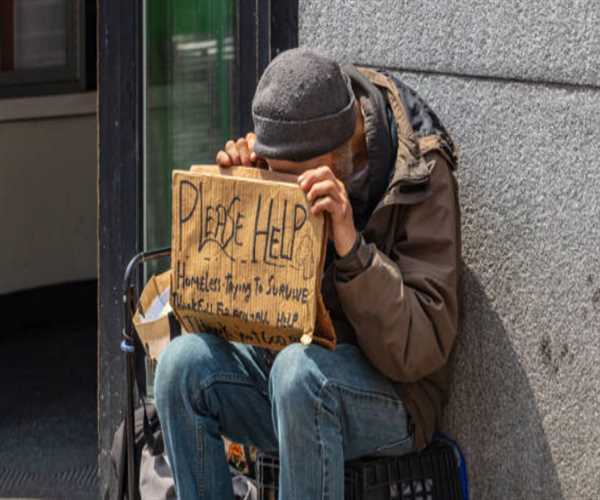
13-May-2024 , Updated on 5/13/2024 7:27:11 AM
Beggar’s numbers are increasing in the United States. Why?
In a lot of American cities, you could see a person begging on the street. However, there seems to be a growth within the number of people turning to begging in current years. A critical difficulty is added up by using this fashion: Why are greater people begging inside the US, a country with a substantial social safety net? Finding long-lasting solutions and approaching this problem with compassion requires information of the many variables at work.
The Widening Gap: The Cost of Living Crisis and Increasing Inequality
The growing financial disparity inside the United States is a main aspect contributing to the upward push in beggars. Rising housing, healthcare, and fundamental want fees coupled with stagnant income are increasingly driving people into poverty. People who emerge as near homelessness due to task loss, unanticipated scientific issues, or a loss of lower priced housing might also resort to begging as a final-ditch survival tactic.
The System's Cracks: Issues with Social Safety Nets
Despite the lifestyles of social protection applications in the US, inclusive of Social Security and SNAP (Supplemental Nutrition Assistance Program), acquiring these benefits may be difficult and fraught with purple tape. Furthermore, positive safety internet packages couldn't offer sufficient help to meet basic requirements, making humans more vulnerable to shocks to the financial system. People are pressured right into a cycle of poverty and may flip to begging due to the shortage of less expensive housing choices, especially in massive towns.
The Effects of the Addiction and Mental Health Crisis
Addiction and intellectual fitness problems are important contributions to homelessness and begging. People who're coping with those troubles can also find it difficult to get and preserve an activity, to keep strong housing, or to get the right of entry to facilities for proper treatment. They might also grow to be prone and turn to begging on the way to live if there are inadequate intellectual health remedies available or if the price of remedy is prohibitive.
The Changing Urban Environment Landscape
Another factor is the way urban areas are evolving in dynamics. Low-income inhabitants in some communities are pushed out by gentrification and forced into places with less services and support networks. This may lead to an increase in begging as people find it difficult to adjust to their new situation.
What Actions Are Possible?
America's begging problem is complicated and calls for a multifaceted solution.
Increasing the minimum wage, facilitating better access to benefits, and looking into creative housing options are ways to fortify the social safety net and keep impoverished people from becoming homeless. Breaking the cycle of poverty and begging requires expanding access to reasonably priced mental health care and addiction treatment programs.
You may help people get back on their feet by giving to local groups that run food banks, shelters, and job training programs. To address the underlying source of the problem, funding preventative initiatives, expanding access to addiction treatment, and investigating non-pharmaceutical painkiller options are crucial.
Conclusion
America's rising rate of begging is a sign of more serious social problems. It will take a team effort from lawmakers, social service providers, and citizens to address this issue. We can build a society where fewer individuals feel compelled to beg for basic necessities by funding social safety nets, mental health services, and affordable housing alternatives. In addition, cultivating empathy and comprehension may result in more efficient and compassionate resolutions to this intricate problem.

CONTENT WRITER
Writing is my thing. I enjoy crafting blog posts, articles, and marketing materials that connect with readers. I want to entertain and leave a mark with every piece I create. Teaching English complements my writing work. It helps me understand language better and reach diverse audiences. I love empowering others to communicate confidently.
Join Our Newsletter
Subscribe to our newsletter to receive emails about new views posts, releases and updates.
Copyright 2010 - 2026 MindStick Software Pvt. Ltd. All Rights Reserved Privacy Policy | Terms & Conditions | Cookie Policy